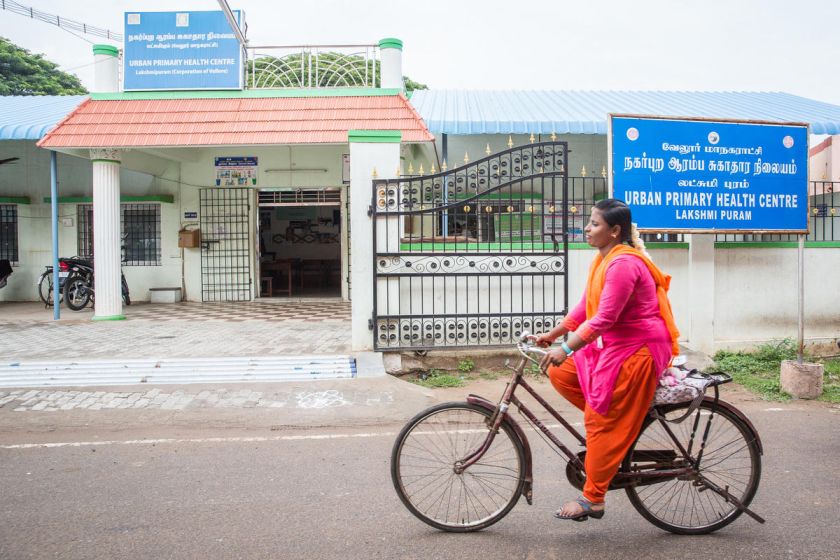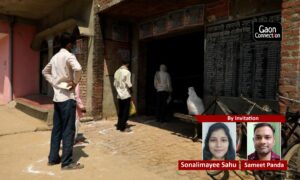Communities and authorities across the world are battling the COVID-19 pandemic, which is being called the world’s most challenging crisis since World War II.
If we are to respond to it effectively, we need a coherent healthcare strategy. We are going to have to live with the choices that we make now, at least until a vaccine for COVID-19 is developed. Therefore, we need to prepare ourselves to respond not just in the next 15, 30, or 45 days, but until such time as a vaccine becomes available. In a best-case scenario this would be 15-18 months from now, followed by a phased roll-out of the vaccine across the country.
Given the urgency and the rapidly evolving scenario, we need to first and foremost ensure that a steady supply of essential inputs is available beyond metros and Tier-I cities. This includes testing kits, personal protective equipment (PPE), drugs, and adequate health infrastructure, such as hospitals, with necessary treatment facilities and quarantine facilities. We need to do much more testing, better contact tracing, and ensure quarantine measures are followed, especially in hotspots and high-risk clusters.
The second level of our response must entail identifying and acting on the measures necessary until and after the lockdown ends—which is most likely to occur in a phased manner—so that we are better prepared to respond to the crisis as it unfolds. The good news is that we can leverage a lot of what we already know or accelerate long-pending plans, to equip ourselves for the coming months. We do not necessarily need novel solutions to deal with the novel coronavirus.
We must take proactive measures to tide us through this challenging phase
We need to fast-track reforms
This is the first time in most of our lifetimes that the entire country is focused on solving one problem. It is also an opportune time to reform our healthcare system. Many vital reforms that have been researched, developed, and proposed by experts over the years are yet to see the light of day. For instance, in 1973, the Kartar Singh Committee recommended having a dedicated public health management cadre at both central and state levels. This was proposed again more recently in the National Health Policy 2017. Another relevant reform relates to fast tracking the implementation of The Allied and Healthcare Professions Bill, 2018, which seeks to standardise the education and practice of allied health professionals (AHP) or paramedics, as they are commonly known. There are many other pending reforms in the areas of medical supplies, health financing, and payment mechanisms that are worth looking into.
Along with reforms we also need to take some quick policy decisions to strengthen our health system’s ability to respond to the current situation. In Italy, the government has instructed medical universities to shorten MBBS programmes by ten months and award degrees without exams. Similar steps have been taken by other countries that have been hit by the pandemic too. We do not need to take such drastic measures. Thousands of doctors who have been trained in Russia and China—and can legally practise in most parts of the world—are waiting to clear the Medical Council of India’s (MCI) eligibility test. Dr Devi Shetty of Narayana Health recommends that the MCI give them temporary licenses to work under the guidance of experienced doctors.
Some reforms are already underway. A good example is the guidelines for telemedicine or the remote delivery of medical services that were issued by the government on March 25th. While telemedicine is not the solution to all the challenges that COVID-19 has thrown up, this move will enable doctors to diagnose and treat more patients, reduce the load on health facilities, while also reducing the risk of transmission of the virus. Reform is a continuous process and healthcare providers working in the area of telemedicine have already highlighted that some of the new guidelines need to change quickly.
Boost public-private partnership (PPP)
Industry and government must collaborate through the PPP route, as this approach could be particularly helpful in responding to critical supply gaps that need attention. One such example is the production of test kits—both for PCR and antibody testing, which are the two main ways in which people are being tested for COVID-19. To make this happen, the government needs to move quickly to expedite the availability of primers to select reputed biotech companies who are keen and equipped to manufacture these kits.
Build a data culture
The current lockdown is likely to be the first of many more. We will see more instances of targeted lockdowns which will have to be accompanied by targeted contact tracing. And while we already have data systems in place, in the form of the government’s Health Management Information Systems (HMIS), we fall short on data-driven decision-making. If we are to overcome the far-reaching impact of the virus, we will have to focus our efforts on gathering high-quality data and using it to drive policy and operational decision-making. We have the systems, but we need to leverage them and build a culture of data-driven policy and decision-making.
Leverage digital India for efficient surveillance
We must equip our frontline workers with the digital tools and technology that can assist them to trace, track, and refer patients who are affected by COVID-19. India deployed a country-wide surveillance mechanism in its battle against polio and this can be revitalised with available digital tools. In addition, many start-ups have the technical expertise to develop and deploy digital surveillance systems, and the government can benefit from working with them to leverage these tools for digital surveillance while also ensuring privacy and data protection rights.
Engage communities
It will not be enough to simply inform communities about the precautions they need to take. We need to truly engage people to prepare them for the many implications of the spread of the virus, while also debunking myths and misinformation. In order to do this effectively, it is critical to rope in behaviour change communication (BCC) experts who can recommend a coherent approach that can dispel fears and nudge people towards practices that secure their health and safety. One immediate example of a critical behaviour change that is required is to have our entire population wear masks over the many coming months.
Engage private healthcare services
Across the country, most poor people visit informal medical practitioners for their healthcare needs. They are the first point of contact for the poor, and if we fail to identify constructive ways to engage with these networks, we run the risk of under-reported cases of COVID-19, increased likelihood of transmission of the virus, and delayed care-seeking which could result in higher mortality rates.
Plan for associated health impacts
The lockdown and the economic downturn that we face may have unintended health consequences on child health, maternal health, nutrition, and mental health that need to be dealt with on priority, especially among poor families.
Invest in public health
Historically, health has never been high on the agenda of our political leaders. India spends 1.28 percent of its GDP on public health. But now, we find ourselves in a situation where our political leadership—the prime minister, chief ministers, and the entire government machinery—is collectively focused on responding to the COVID-19 pandemic.
If we reform our public health system now, it creates an opportunity for ripple effects in other areas too: for instance, nutrition and water and sanitation. We have spoken about a multi-dimensional approach to public health for long, and we finally have a catalyst that is pushing us towards this approach.
Ultimately, over and above these measures, our response to the pandemic must be one that keeps medium- to long-term considerations at the forefront. Doing so will give us the opportunity to strengthen our healthcare system. To achieve this, we need strong leadership from public health professionals. Rather than having overburdened bureaucrats decide courses of action across a range of areas, can we ensure that they are guided and supported by public health professionals, at all decision-making levels of government? A coherent response with a clear direction is key. While the pandemic is a bigger challenge, I am optimistic that we can come together like we did to eradicate polio. If we work in unison, using standardised protocols and dependable datasets, we can ensure that nobody gets left behind.
A strong public health system will benefit everyone, and there is no better time than now to make it a reality.
Shamik Trehan is the CEO of Dr Reddy’s Foundation
The article has been sourced from India Development Review. You can read the original article here.


















